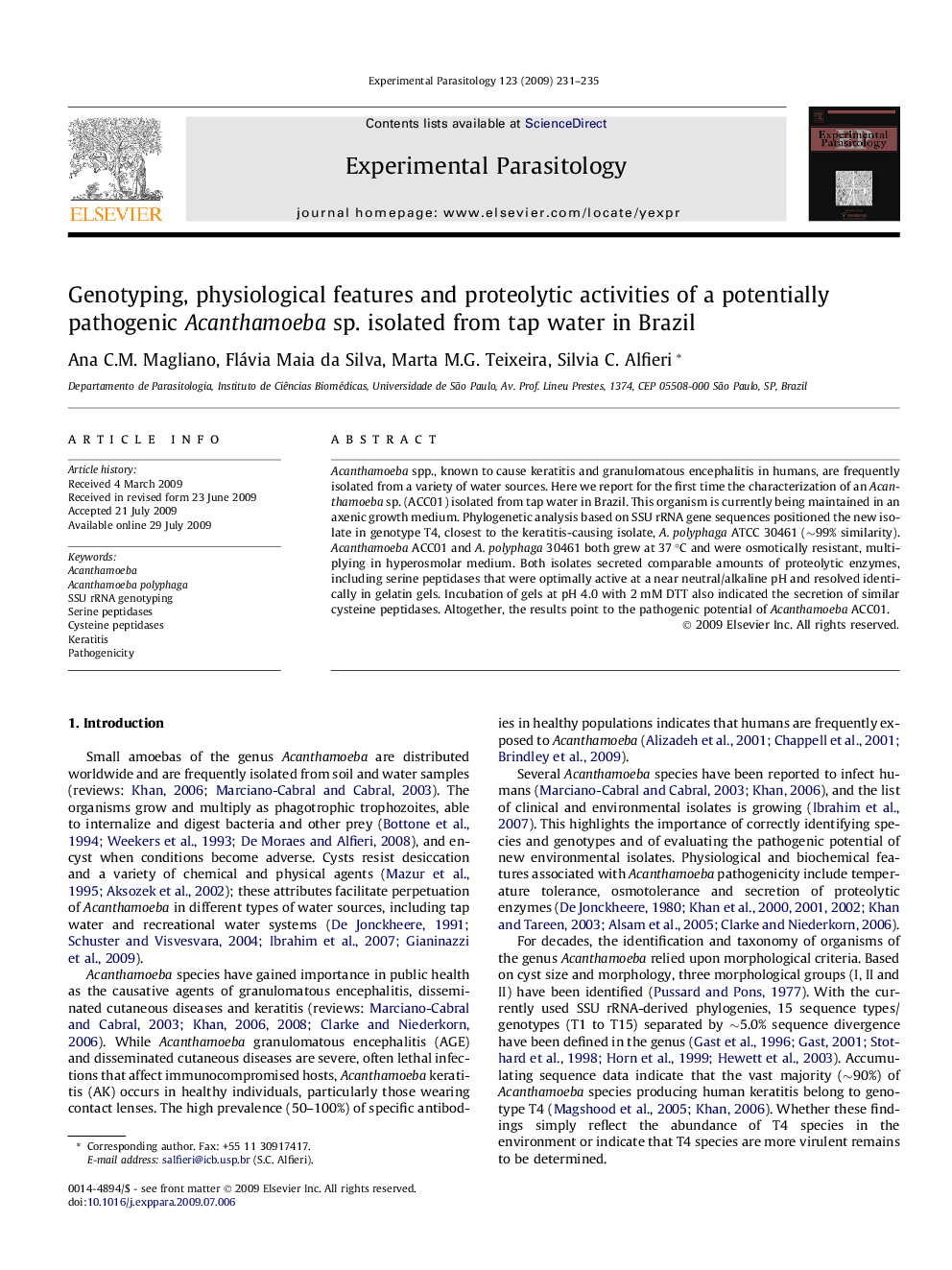| Article ID | Journal | Published Year | Pages | File Type |
|---|---|---|---|---|
| 4371794 | Experimental Parasitology | 2009 | 5 Pages |
Abstract
Acanthamoeba spp., known to cause keratitis and granulomatous encephalitis in humans, are frequently isolated from a variety of water sources. Here we report for the first time the characterization of an Acanthamoeba sp. (ACC01) isolated from tap water in Brazil. This organism is currently being maintained in an axenic growth medium. Phylogenetic analysis based on SSU rRNA gene sequences positioned the new isolate in genotype T4, closest to the keratitis-causing isolate, A. polyphaga ATCC 30461 (â¼99% similarity). Acanthamoeba ACC01 and A. polyphaga 30461 both grew at 37 °C and were osmotically resistant, multiplying in hyperosmolar medium. Both isolates secreted comparable amounts of proteolytic enzymes, including serine peptidases that were optimally active at a near neutral/alkaline pH and resolved identically in gelatin gels. Incubation of gels at pH 4.0 with 2 mM DTT also indicated the secretion of similar cysteine peptidases. Altogether, the results point to the pathogenic potential of Acanthamoeba ACC01.
Keywords
Related Topics
Life Sciences
Immunology and Microbiology
Parasitology
Authors
Ana C.M. Magliano, Flávia Maia da Silva, Marta M.G. Teixeira, Silvia C. Alfieri,
